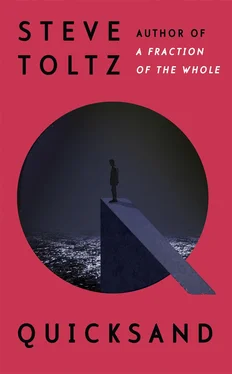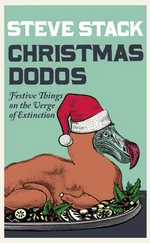We climbed the rusty drainpipe of the toilet block and sat on the hot concrete roof and spent the afternoon memorialising our big sisters, those lavender-candle-scented, introspective blabbermouths prone to selective catatonia. I told him about Molly’s death by speeding cop, and he told me what happened to Veronica, how a few years earlier in Bali she was a passenger on a bus when a bomb onboard was accidentally activated; the terrorists were en route to their intended target in Kuta Beach, ironically Veronica’s destination also. Aldo and I confessed in a delicious mania of grief how each of us had at one point wished his sister dead, and how this perverse magical thinking was driving us both quietly insane. We couldn’t believe we had this in common too. While our grieving parents were hagiographers on the subject of their incandescent daughters, we often sat simpering in their silent bedrooms, bedrooms that were either packed away and stripped bare (Veronica’s) or left unnervingly intact (Molly’s). It was incredible that we had lost them at the same exact point on the relationship cycle, more or less at the same time, around their seventeenth birthdays, when they refused tickle fights and treated our smiles like swastikas, grew thorns, and mastered derision. We had both secretly idolised them and they treated us, their younger brothers, like plague-carriers. Yes, it was amazing to us that we had both been abandoned and forsaken by our older sisters, both of whom wouldn’t let us disturb them even as they watched the neighbours (Molly) or infomercials (Veronica)!
For months we poured out our secret grief every afternoon on the toilet block roof. We read their diaries, scoured their letters, obsessively compared and contrasted characteristics of these young women we’d lost, as if trying to decode some puzzle or classify a genus or species. In this way we kept each other’s sister alive. While they had obvious differences — e.g. one had a voice like a glockenspiel (Veronica), the other a car alarm (Molly); one wept into pillows (Veronica), the other into stuffed bears (Molly); one viewed herself as a princess (Veronica), the other a high priestess (Molly) — there were so many disturbing similarities that the more we talked, the more they seemed like a two-headed creature with one narrow waist, twenty weird toes and four double-jointed elbows; an übersister , made up of door slamming and mirror staring and the ability to make a bong out of anything (a Pringles can, a carrot, a golf ball) and fake tears and histrionic journal writing and shrooming breasts and crushing putdowns to parents and secret cigarette stashes and early periods and bathroom ruckuses and iron deficiencies and improbable boyfriends and acrobatic mood swings and excessive hair-dryer usage and lame henna tattoos. They stood in doorways unsure whether to enter or exit, and sleeplessly stared out rain-streaked windows. They often pretended to not see us (Veronica) or hear us (Molly). We consoled each other that their meanness was bravado, that the girls would have grown out of torture eventually. I recall how Aldo, as he spoke, would look at his left hand for evidence of his sister’s incisor marks, sadly long faded, and reminisce how she would smoke her cigarettes in his room so he’d get the blame. I told him how I still felt phantom Chinese-burn pains on my arm, and how I hated when Molly held a mirror to me, literally. Aldo admitted he often sat in Veronica’s bedroom running his finger over spilled nail polish that had dried on her bedside table, or trying on her hat collection — fake tiaras, chef hats, crowns, plastic halos, Indian feathers, stetsons — or looking at her fake ID concealed in her annotated Anaïs Nin journals, or rereading dozens of Veronica’s own poems; that was her main interest: poems about madwomen recently out of attics and those remaining in rooms of their own. It was in those unrhymed stanzas he learned things no brother wanted to: about periods and handsy uncles, how she hated blowjobs but wanted to be nationally ranked, how although she did not yet have a serious boyfriend, she wanted an open marriage. Mostly, as he sat on her bed, Aldo remembered her pitying gaze, as if she knew something bad was going to befall him and didn’t want to be around to see it.
Together we said their names until their names lost power; we had séances every night and then suddenly we stopped, as though we’d grown out of them at precisely the same time. Our mind’s eyes were sore and tired, we had exhausted them; there was nothing more to say, nothing left to interpret. We were two friends but also two brothers, not to each other, but to our dead sisters. And when those sisters receded into the ether, the brotherhood remained.
It should be noted, incidentally, that sometimes Aldo spoke like someone with hypothermia trying to keep himself alive. That’s not to say he wasn’t an acute listener — it was actually more common for him to ask a series of intrusive questions about your private thoughts and shameful secrets — but from time to time he’d burst into a furious monologue (a habit that was to become familiar to arresting officers and presiding judges in later years) or regale you with interlocking anecdotes in excremental detail, as if submitting to some maddening impulse he himself seemed almost sorry for, and in the face of which there was zero possibility of interrupting.
On that dawn tour, Aldo guided me to a street that had rows upon rows of houses with houses stuck on top of them, clumsily added by affluent families who had nowhere to go but up. It was his opinion, he said, that his pathological fear of being alone came from the inability of his father, Henry, to stop renovating their house. ‘Is that so?’ I asked absently, as Aldo went on to psychoanalyse himself in his outside voice. In spite of periodic recessions, he said, these renovations had been ongoing throughout his childhood and adolescence and therefore , he said, sounding unexpectedly shrill, his phobia was not just a result of growing up in what was for all intents and purposes an open construction site, in a home that had containment areas and no-go zones and so many workplace accidents the family always joked that they affected the national average; nor was it simply due to his childhood being choked with dust, or one foot regularly plummeting down holes while the opposing leg bent to near-fracture angles, or because he slipped into cracks, tripped over exposed wires, was soaked by leaky pipes and threatened by half-demolished walls, and it wasn’t even , if that’s what I was thinking (I wasn’t), because he existed in a world in which nothing was permanent and everything could be improved upon. I tried to say something but Aldo had gained an unstoppable momentum. To rearrange my facial expression or simply walk away were my only options. No, he said, his actual psychological development was warped by the construction workers themselves , the incredible team of unprofessionals he always felt cursed to remember clearly.
‘Who are you talking about?’
We had stopped outside a beige three-storey monstrosity replete with columns, imposing doors, oversized chimneys and church-like windows.
‘This is it,’ he said.
Aldo knocked vigorously on the front door and encouraged me to press my face against the bay windows. Through the tasselled drapes, we could make out floral-patterned armchairs and a fake chandelier with plastic strawberries. Growing up, any plan to slip downstairs and watch TV was often foiled by the warm body of a stoned cousin sprawled on the couch, he explained, and he couldn’t get so much as a glass of milk without haggling with despotic aunts with pyramids of hair and smudged eyeliner, or climb a staircase without plodding behind slow-moving grandparents, or use the toilet without waiting until he got severe kidney pains, or go to bed without suffering twenty solid minutes of goodnight kisses, or turn off his night light without listening to the incoherent bedtime stories of drunk uncles, stories so long and boring his pulse would slow to hear them. It was perhaps because, Aldo went on to speculate, at any hour of the day or night there were clusters of human beings three generations apart gabbing interminably in his living room that he’d felt gripped ever since by a terror of solitude. ‘And even at the time, I was so aware of this that often I’d wish they would all die at once,’ he said. ‘In their sleep, of course — I’m no monster.’
Читать дальше











